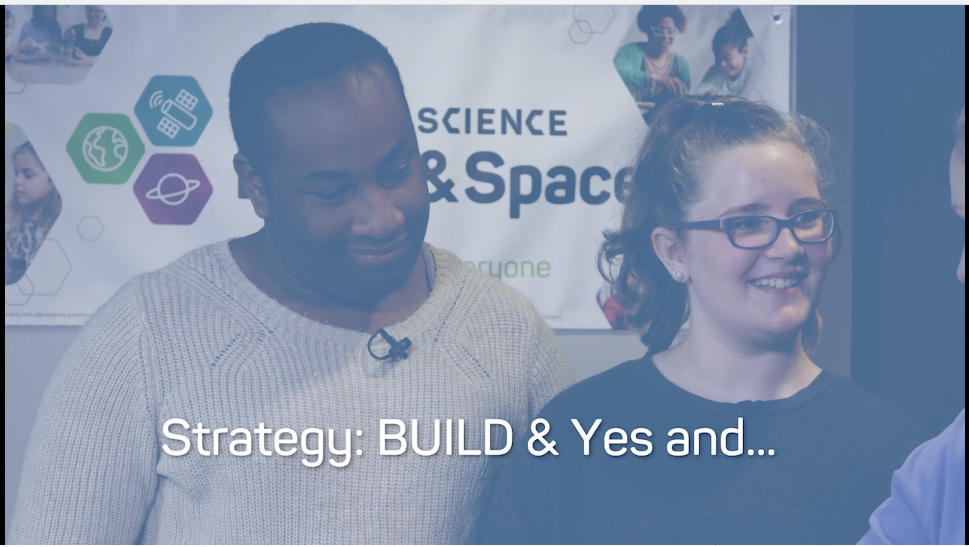DESCRIPTION
It can be challenging to know what ideas and experiences learners already have when they visit an informal education venue. What facilitation approaches will help them build productive and deep conceptual learning about Earth and space science? When educators anticipate how learners will respond to difficult concepts and use materials designed to address those responses, they are more likely to help learners overcome partially correct ideas.
In this training video series we highlight strategies that facilitators can use to handle the intuitive knowledge visitors apply to scientific concepts. Part one explores this through the Pocket Solar System activity in the Explore Science: Earth & Space 2017 toolkit. Part two explores this through the Filtered Light activity in the Explore Science: Earth & Space 2018 toolkit.
DESCRIPTION
It can be challenging to know what ideas and experiences learners already have when they visit an informal education venue. What facilitation approaches will help them build productive and deep conceptual learning about Earth and space science? When educators anticipate how learners will respond to difficult concepts and use materials designed to address those responses, they are more likely to help learners overcome partially correct ideas.
In this training video series we highlight strategies that facilitators can use to handle the intuitive knowledge visitors apply to scientific concepts. Part one explores this through the Pocket Solar System activity in the Explore Science: Earth & Space 2017 toolkit. Part two explores this through the Filtered Light activity in the Explore Science: Earth & Space 2018 toolkit.
TRAINING VIDEOS
DOWNLOAD FILES
Credits
The Science Museum of Minnesota
This material is based upon work supported by NASA under cooperative agreement award number NNX16AC67A. Any opinions, findings, and conclusions or recommendations expressed in this material are those of the author(s) and do not necessarily reflect the view of the National Aeronautics and Space Administration (NASA).
Creative Commons Attribution Non-Commercial Share Alike 3.0 United States (CC BY-NC-SA 3.0 US).
View more details

NISE Network products are developed through an iterative collaborative process that includes scientific review, peer review, and visitor evaluation in accordance with an inclusive audiences approach. Products are designed to be easily edited and adapted for different audiences under a Creative Commons Attribution Non-Commercial Share Alike license. To learn more, visit our Development Process page.

